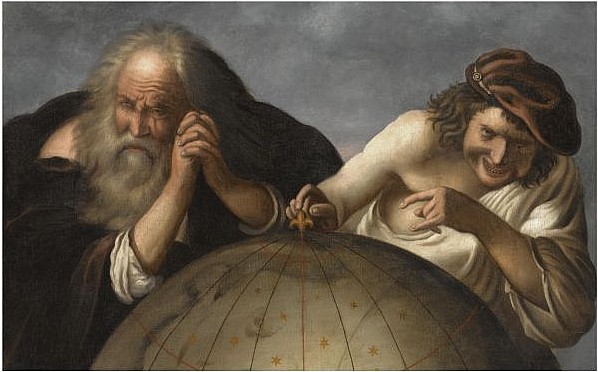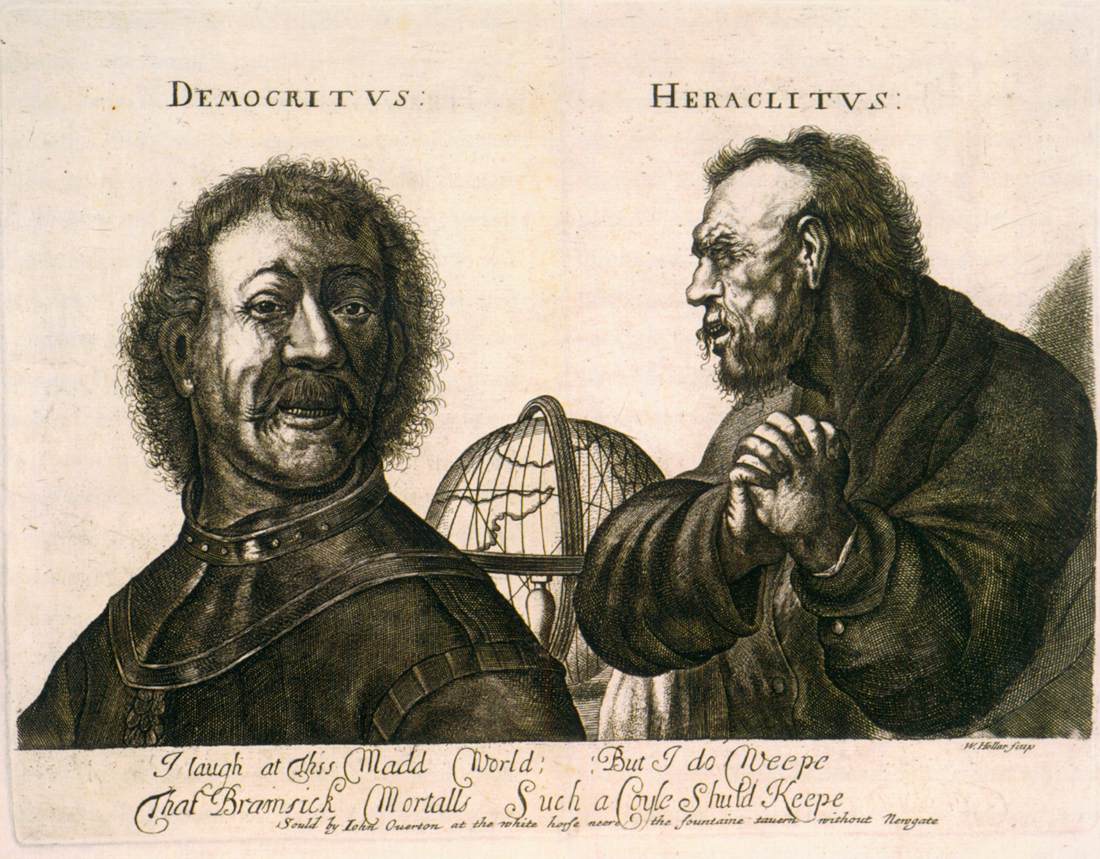Reference




OpenAI's Answer
In Heraclitus' philosophy, the roles of laughter and weeping are often understood through his epithet as the “weeping philosopher.” This designation contrasts him with Democritus, who is known as the “laughing philosopher.” The distinction provides insight into their differing perceptions of human existence and folly.
Weeping Philosopher: Heraclitus
Heraclitus is known for his melancholic view of the world. He weeps because of the constant change and the inherent suffering and folly present in human life. His famous doctrine, encapsulated in the phrase "panta rhei" ("everything flows"), underscores the perpetual flux and the often-tragic impermanence of life. Heraclitus’ weeping reflects his profound empathy for human suffering and the chaotic nature of existence.

Contrasting with Democritus
In contrast, Democritus is often depicted laughing because he views human follies with a sense of detachment and amusement. The juxtaposition of Heraclitus’ tears with Democritus’ laughter highlights two philosophical approaches to understanding life: one steeped in sorrow over human condition and the other finding absurdity and comedy in it.

Philosophical Implications
Heraclitus’ weeping can be interpreted as a philosophical stance that acknowledges the depth and seriousness of human existence. It portrays a sense of reverence for the challenges and the constant state of change that defines human life. This approach stands in stark contrast to the more detached, perhaps even cynical, laughter of Democritus, which might suggest a lighter, more sanguine view of life's imperfections.
Summary
In conclusion, Heraclitus' weeping signifies his deep engagement with the impermanent, suffering-filled nature of human existence. This emotional response aligns with his broader philosophical views on the ceaseless flux and inherent difficulties of life. Through this lens, laughter and weeping are not merely emotional responses but represent philosophical attitudes toward the human condition.
For more detailed reading:
Follow Up
Related
How did Aristotle's reception of Heraclitus influence philosophical thought?
What influence did Heraclitus have on Renaissance thinkers?
How did Heraclitus' concept of the soul differ from Homer's conception?
How does Heraclitus’ philosophy relate to Wittgenstein's concept of stepping into the same river?
What contributions did Ingram Bywater and Hermann Diels make to Heraclitus studies?